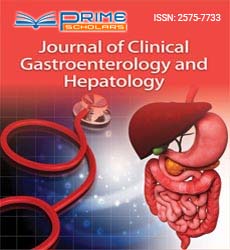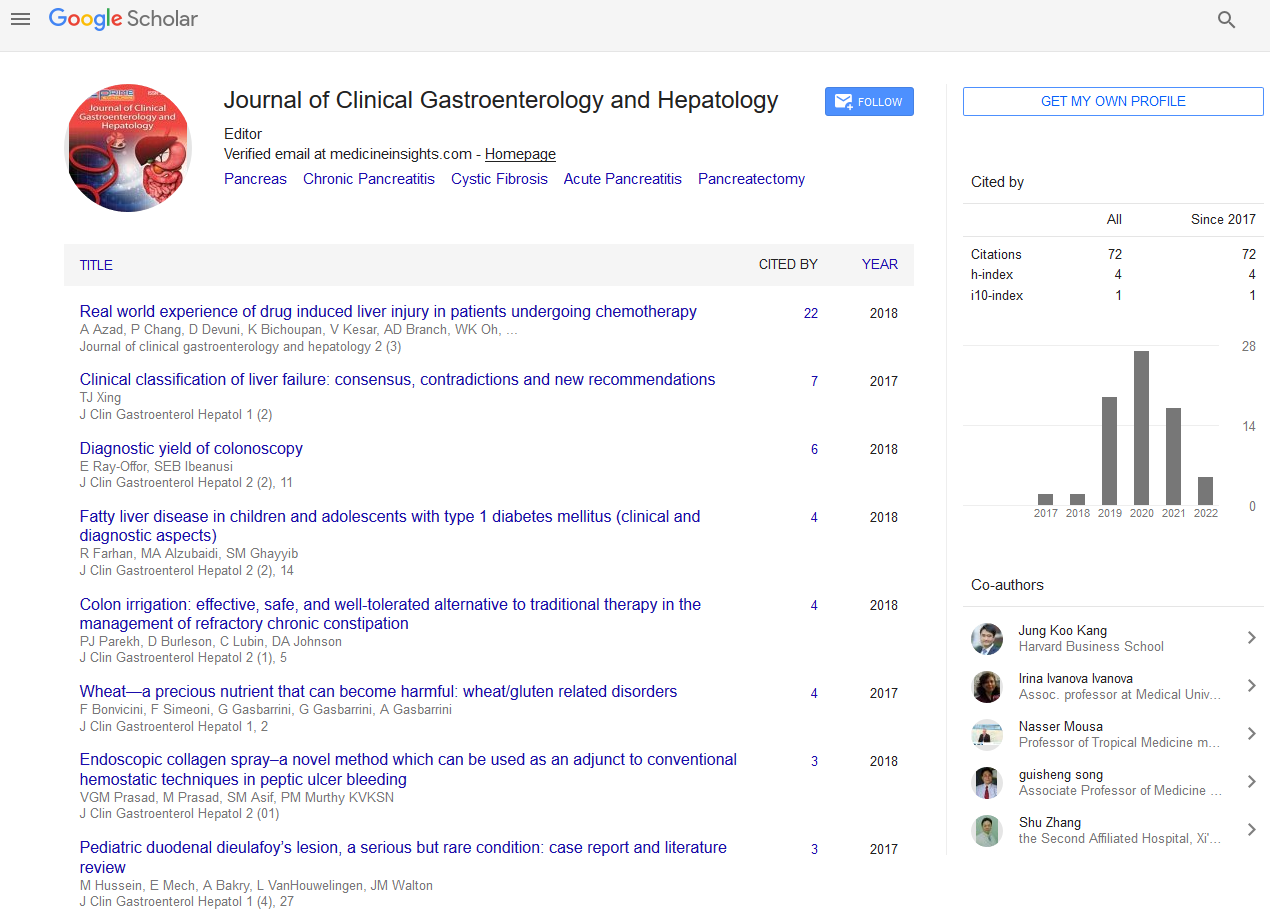Short Communication - (2023) Volume 7, Issue 3
Hemorrhoids Come in Two Assortments Inside and Outside of the Blood Vessels
Diane Mege*
Department of Surgery, Hanyang University College of Medicine, Iran
*Correspondence:
Diane Mege,
Department of Surgery, Hanyang University College of Medicine,
Iran,
Email:
Received: 31-May-2023, Manuscript No. IPJCGH-23-16792;
Editor assigned: 02-Jun-2023, Pre QC No. IPJCGH-23-16792;
Reviewed: 16-Jun-2023, QC No. IPJCGH-23-16792;
Revised: 21-Jun-2023, Manuscript No. IPJCGH-23-16792;
Published:
28-Jun-2023, DOI: 10.36648/ipjcgh.7.3.21
Introduction
Infections of the gastrointestinal tract GI can be brought on by viruses, bacteria, or parasites. With only supportive care, viral and bacterial infections typically resolve in a few days. Antibiotics can be used to treat bacterial infections, depending on their nature and severity. GI bleeding is a sign that something is wrong with your digestive system. The blood frequently shows up in stool or regurgitation yet isn’t generally noticeable, however it might make the stool look dark or hesitate. The level of bleeding can be life-threatening and range from mild to severe. Upper gastrointestinal series UGI, ultrasounds, MRIs, CT scans, and X-rays are all common types of imaging tests for gastric conditions. For an even clearer image of the gastrointestinal plot, a barium swallow or barium douche might be utilized related to an X-beam. Antibiotics and staying hydrated are two ways to treat a gastrointestinal infection. Antibiotics such as Penicillin, Cephalosporin, Antifolate/Sulfa combinations, Nitroimidazole, Penem, Glycopeptide, and Monobactam are frequently used to treat gastrointestinal infections [1,2].
Description
Particularly in infants, gastroenteritis can result in severe dehydration and electrolyte imbalance, which can cause sudden death. A number of unusual and rare conditions that could result in gastrointestinal bleeding that could be fatal. Symptoms of viral gastroenteritis can be mild to severe and appear within 1-3 days of being infected, depending on the cause. Usually, symptoms only last a day or two, but they can sometimes last up to 14 days. Hemorrhoids are widened veins in your butt-centric waterway. This is a disease of the structure. They are brought on by persistent diarrhea, excessive strain during a bowel movement, or pregnancy. Hemorrhoids come in two varieties: Both inside and outside the blood vessels on the inside of your anal opening are called internal hemorrhoids. They begin to bleed and become irritated when they strain and fall into the anus. In the end, internal hemorrhoids can prolapse, sink, or protrude from the anus. A structural gastrointestinal disease is one in which your bowel appears abnormal and does not function properly. Occasionally, the structural defect must be surgically removed. Stenosis, hemorrhoids, diverticular disease, colon polyps, inflammatory bowel disease, and strictures are all examples of structural GI diseases. Medical services suppliers who have some expertise in gastrointestinal sicknesses are called gastroenterologists. Specialists who work in gastrointestinal sicknesses are called colorectal specialists proctologists. A functional problem known as constipation makes it difficult to urinate or pass stools, making them either absent or infrequent less than three times per week [3,4].
Conclusion
Obstruction makes you strain during a solid discharge. It may result in hard, small stools and occasionally anal issues like fissures or hemorrhoids. Blockage is seldom the sign that you have a more serious ailment. Irritable bowel syndrome, also known as spastic colon, irritable colon, IBS, or nervous stomach, is a functional condition in which the muscles in your intestines contract more or less frequently than usual. IBS can be sparked by a number of things, including emotional stress, medications, and some foods. If you experience frequent bowel movements, rectal bleeding, or other abnormalities, you may need to see a gastroenterologist.
Acknowledgement
None.
Conflict Of Interest
The authors declare that they have no conflict of interest.
References
- Haier J, Nicolson GL (2001) The role of tumor cell adhesion as an important factor in formation of distant colorectal metastasis. Dis Colon Rectum. 44(6):876-84.
[Crossref] [Google Scholar] [PubMed]
- Lohsiriwat V (2015) Treatment of hemorrhoids: A coloproctologist's view. World J Gastroenterol. 21(31):9245-52.
[Crossref] [Google Scholar] [PubMed]
- Guttenplan M (2017) The evaluation and office management of hemorrhoids for the gastroenterologist. Curr Gastroenterol Rep. 19(7):30.
[Crossref] [Google Scholar] [PubMed]
- Xu L, Chen H, Gu Y (2019) Stapled hemorrhoidectomy versus transanal hemorrhoidal dearterialization in the treatment of hemorrhoids: An updated meta-analysis. Surg Laparosc Endosc Percutan Tech. 29(2):75-81.
[Crossref] [Google Scholar] [PubMed]
Citation: Mege D (2023) Hemorrhoids Come in Two Assortments Inside and Outside of the Blood Vessels. J Clin Gastroenterol Hepatol. 7:21.
Copyright: ©2023 Mege D. This is an open-access article distributed under the terms of the Creative Commons Attribution License, which permits unrestricted use, distribution, and reproduction in any medium, provided the original author and source are credited.

